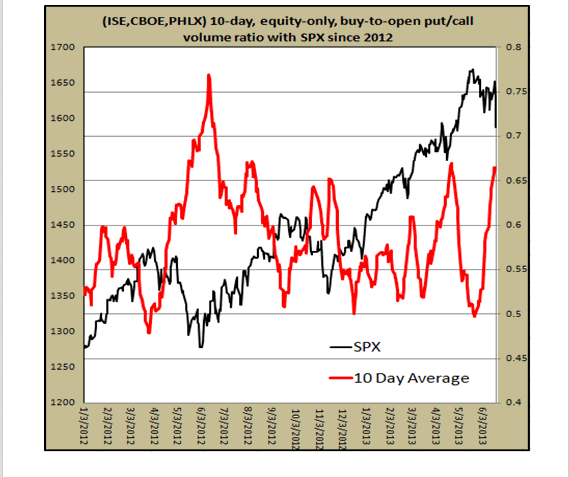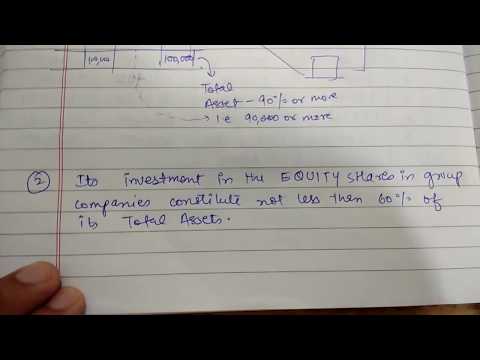
The breach of terms and conditions of the endowment agreement cannot take place except in special cases. Invading or endowment invasion that involves withdrawing the endowments corpus for making debt payments or incurring day-to-day expenses, may ask for permission from the state. This type of endowment has a specific period during which the organization or institution can use the endowment. After the end of the term, the endowment reverts to the donor or is used for a specified purpose. The limits can be in the form of a purpose, program, or activity the endowment is meant to support.

In other words, the funds need to be spent according to the terms established by the donors. This type of endowment permanently restricts how the organization or institution can use the endowment. The principal amount of the endowment must remain intact, and only the earnings or income generated from the endowment can be used for the specified purpose.
What is an endowment?
Together, these gifts form a permanent source of funding that connects scholars and learners from many diverse backgrounds with opportunities at Harvard, now and into the future. Non-profit organizations must comply with federal tax laws governing endowments, which include regulations related to charitable contributions, unrelated business income, and annual distribution requirements. To maintain their tax-exempt status, non-profit organizations must distribute a minimum amount from their endowments each year, as specified by federal law. Over time, inflation can erode the purchasing power of the endowment’s income, making it more difficult for the recipient organization or institution to cover its expenses. Endowments are invested in the financial markets, which can be volatile and unpredictable. A significant market downturn can result in a decline in the endowment’s value, reducing the income available to the recipient organization or institution.

This article explores the psychological aspects of paying for things with cash, rather than a credit card. Research has shown that if people paid for an item using cash, they said they would charge a higher price for it, on average, if they were to sell it. This suggests that we feel somehow more connected to purchases made with cash, which strengthens the endowment effect.
Permanently Restricted Endowment – Types of Endowments
To avoid the endowment effect, beware of sales tactics that encourage psychological ownership, and be mindful of market prices when trying to decide how much to sell for. So, they recruited people from Western cultures, as well as East Asian cultures, and had them participate in an experiment. Both the buyer and seller then filled out a sheet with a range of prices on it, writing for each one whether they would be willing to buy or sell the mug.
Harvard’s endowment has existed for nearly four centuries and belongs to current and future generations of Harvard students, faculty, and researchers. Endowments should provide transparent reporting of their investments, including ethical considerations and their impact on investment returns. Organizations may become over-reliant on the income generated by their endowments, which can create a false sense of security and limit their ability to adapt to changes in their operating environment.
Provide Stable and Long-Term Funding – The Purpose of Endowments
In some cases, donors can deduct the total value of their gift from their taxable income. Endowments can be structured in various ways, allowing donors to tailor their gifts to meet their goals and interests. This flexibility can also enable organizations to use the funds where they are needed most. The organization must establish an endowment account in its accounting system to record all transactions related to the endowment. This account will track the income earned, expenses incurred, and the principal balance.
The Future of International Economic Policy with Deputy National … – Carnegie Endowment for International Peace
The Future of International Economic Policy with Deputy National ….
Posted: Thu, 29 Jun 2023 07:00:00 GMT [source]
Endowed professorships or chair positions get paid with the free up capital and revenue or income that endowment offers. With these revenues, educational institutes can afford hiring more professors, thereby making professors available for students. Colleges and schools can create endowments specifically for a field, department, or study program. Several institutions such as Harvard have faced criticism for having such a huge chunk of endowments. As per the critics, they hoard such big-sized endowments as there was already a hike seen in tuition fees by the end of the 20th century.
Learn first. Trade CFDs with virtual money.
A temporarily restricted endowment is suitable for organizations with short-term needs or projects. However, over time, accounting standards have been established to ensure that endowments are managed and reported correctly. Today, endowments are a crucial part of the nonprofit sector and are essential for funding important social and cultural initiatives.
Poor investment decisions or mismanagement of the endowment’s assets can result in significant losses and a decline in the endowment’s value. The organization must provide regular reports on the endowment to the donor or stakeholders. These reports should include the income earned, expenses incurred and the current balance of the endowment.
Stanford University Endowment – Stanford’s endowment is valued at over $34 billion as of 2021. The endowment has been successful in generating strong returns over the years, which has helped the university fund research initiatives, student programs, and other vital projects. Harvard University Endowment – Harvard University’s endowment is one of the largest in the world, valued at over $40 billion as of 2021. It has successfully generated strong returns endowment meaning in economics over the years, which has helped the university fund various initiatives and programs. Creating an endowment can lead to reduced donor engagement, as donors may feel their gift is no longer needed or have fulfilled their obligation to the recipient organization or institution. The organization must manage the endowment according to the donor’s restrictions and ensure that the income earned is correctly accounted for in the endowment account.
- The oldest endowments still active today were established by King Henry VIII and his relatives.
- In the case of loss aversion, we’re focusing too much on the pain of losing something and failing to think about what we’ll gain by selling it.
- Harvard and other elite higher educational institutions have come under criticism for the size of their endowments.
- AI and machine learning can help endowments analyze data, identify patterns, and make informed investment decisions.
- Endowments are invested in the financial markets, which can be volatile and unpredictable.
Aurelius created the very first endowment for the majority of schools of philosophy in Athens Circa in 176 AD. According to the Tax Cuts and Jobs Act of 2017, and the Bipartisan Budget Act of 2018, large-sized university endowments are required to bear 1.4% as taxes on the investment income received. Endowments that cater to around 35 private educational institutions having a minimum of 500 students enrolled with $500,000 of net assets for each student are bound to bear these taxes. Western academic institutions consider endowments as a crucial element in measuring their financial performance.
One of the most significant developments in the history of endowments in accounting was the establishment of the Financial Accounting Standards Board (FASB) in the United States in 1973. The FASB is responsible for developing and updating accounting standards for all organizations, including nonprofits with endowments. The FASB’s standards guide how to account for endowments, including recognizing and reporting investment income and gains, allocating expenses, and presenting financial statements. It’s not unusual for student activists to look with a critical eye at where their colleges and universities invest their endowments. In 1977, Hampshire College divested from South African investments in protest of apartheid, a move that a large number of educational institutions in the United States followed. Advocating for divestment from industries and countries that students find morally compromised is still prevalent among student activists, though the practice is evolving to improve efficacy, according to reporting by The New Yorker.

If students are of the view that certain investments are made in financially or ethically compromised sectors, student activists go for divestments. An endowment is a financial asset typically donated or invested for a specific purpose, intending to provide ongoing support or funding for a particular organization or institution. Endowments are often created by donors who wish to provide long-term financial support to a charity, educational institution, or other nonprofit organization. Endowments are such an integral part of Western academic institutions that the size of a school’s endowment can be a fair measure of its well-being. They provide colleges and universities with the ability to fund their operating costs with sources other than tuition and ensure a level of stability by using them as a potential rainy-day fund. Under the Tax Cuts and Jobs Act of 2017, substantially large university endowments must pay a tax of 1.4% on net investment income.
The development of sound institutions to access and equitably distribute these resources, however, is necessary in order for a country to obtain the greatest benefit from its factor endowment. The oldest endowments still active today were established by King Henry VIII and his relatives. His grandmother, Countess of Richmond, established endowed chairs in divinity at both Oxford and Cambridge, while Henry VIII established professorships in a variety of disciplines at Oxford and Cambridge.
A future trust
Harvard’s endowment is crucial to our excellence in teaching, learning, and research, as well as the University’s purpose-driven initiatives and partnerships on campus, in our neighboring communities, and all over the world. A personal account can be used to get email alerts, save searches, purchase content, and activate subscriptions. There are several actions that could trigger this block including submitting a certain word or phrase, a SQL command or malformed data.
- There are multiple explanations for the endowment effect, all of which might contribute to different degrees in different situations.
- It includes establishing an investment committee, hiring qualified investment managers, and ensuring the organization’s financial practices are transparent and accountable.
- It may involve diversifying investments, creating contingency plans, and implementing risk management tools such as hedging strategies.
- They can assess the financial performance of particular areas, create professorships, and can further be given to meticulous students as scholarships and fellowships.
- Endowment funds play a critical role in the continued operations of key organisations.
For example, an endowment might limit the withdrawals to 5% of the total amount in the fund. The reason the percentage of withdrawal is typically so low is that most university endowments are established to last forever and, therefore, have annual spending limits. There are multiple explanations for the endowment effect, all of which might contribute to different degrees in different situations.
King Henry VIII and his relatives came up with the biggest endowments that still exist today. Countess of Richmond, his grandmother, created endowed chairs at two big universities including Cambridge and Oxford. Besides, Henry VIII created professorships in different departments at both these institutions.

0 Comments